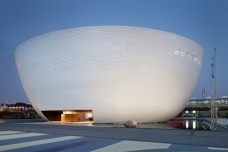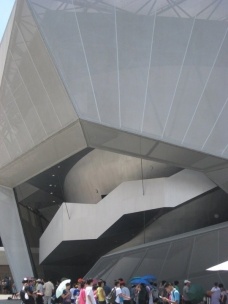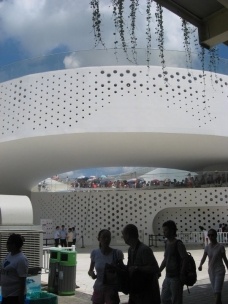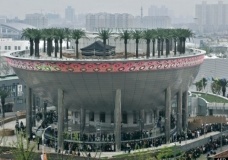
newspaper
news
The 11 gold award winners were the pavilions of Germany, Saudi Arabia, the United Kingdom, Chile, Sweden, Finland, Algeria, Slovenia, Portugal, Mauritania and the Pacific
There were also A, B, C and D categories according to size: A being above 4,000 square meters; B, from 2,000 to 4,000 sq m; C, less than 2,000 sq m; and D, the 11 joint pavilions.
D-category pavilions were entitled to compete for the prizes for theme development and creative display since only self-built pavilions qualified for the pavilion design competition.
Some of these were both the most innovative and easy to understand.
Germany's pavilion, for example, which was visited by more than 4 million people over the six-month period, was given the gold award for theme development, or, the best development of the Expo 2010 theme "Better City, Better Life".
The commissioner general of the Germany Pavilion, Dietmar Schmitz, had this to say: "I have been asked several times in Germany how we managed to be one of the most popular pavilions at the Expo 2010. The enthusiasm people have displayed shows us that our philosophy of presenting complex issues in simple terms has a real appeal for the audience here."
The Saudi Arabia Pavilion, another popular one, as was indicated by the longest wait time needed to get inside, was given the gold award for creative display.
Yang Hong, a 50-year-old housewife who spent a phenomenal six-hour queuing just to get inside, said it was worth the wait and that it was by far her favorite pavilion in her (also phenomenal) 11-day expo experience.
"I was presented with an incredible spectacle. When I was on its 'Silk Road Treasure Ship', the desert showed me where the earth touches the sky," she said. "I also came to see that Saudi Arabia doesn't only have a desert, but also a modern side to it."
Abdulrahman Al-Shaikh, commissioner general of the Saudi Arabia Pavilion, said that was what they wanted to show: "In the eyes of most Chinese, Saudi Arabia is a country with large oil reserves and a large desert. By presenting ourselves at the Expo, we have shown that our country is a state with a great heritage and history.
"We've also shown that we are a modern country befitting a modern age. At the beginning, I knew it would be a success, but I did not expect it to be that popular."
The UK Pavilion, a member of the A-category, took the gold for pavilion design award.
The BIE-COSMOS Prize was given to the Chain Reaction, a Chinese private non-profit organization that works on protecting and promoting the indigenous culture in Guizhou province. Its winning project, "For Our Daughters", guided by Zhang Xiaosong, a professor, is intended to support independent, sustainable development in ethnic communities.
The Expo jury special award went to the MeteoWorld Pavilion.

Finnish pavillion
Photo JKMM Architects

German pavillion
Photo Arabella González

Danish pavillion
Photo Arabella González

Saudi Arabia pavillion

